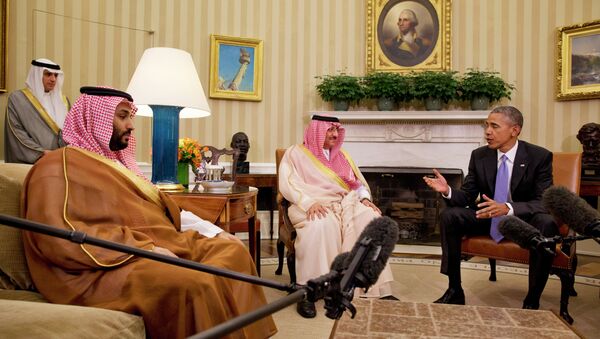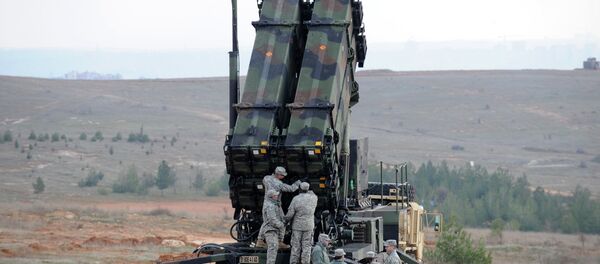MOSCOW (Sputnik), Alexander Mosesov — The special status that the United States has assigned to the Gulf Cooperation Council (GCC) states in its Foreign Military Sales (FMS) program is a result of extensive US-GCC cooperation on shared missile defense architecture, a US State Department official told Sputnik on Thursday.
"The United States and our GCC partners have had years of productive cooperation on ballistic missile defense [BMD] planning, and we have had productive discussions on shared BMD architecture. This was contemplated in the President’s decision in December 2013 to treat the GCC states as an international organization for Foreign Military Sales."
Following the meeting, the United States decided to help conduct a study of GCC ballistic missile defense architecture and to offer technical assistance in the development of a GCC-wide Ballistic Missile Early Warning System.
US President Barack Obama's 2013 decision allows the country "to deliver on a commitment to make the Gulf a stronger, more capable partner in confronting the many challenges to our shared interests in the region," the State Department official concluded.
Concern over Iran’s nuclear program and the advances in the country’s ballistic missile technology made the GCC states deploy Patriot missiles and consider purchasing Terminal High Altitude Area Defense (THAAD) systems from the United States.




